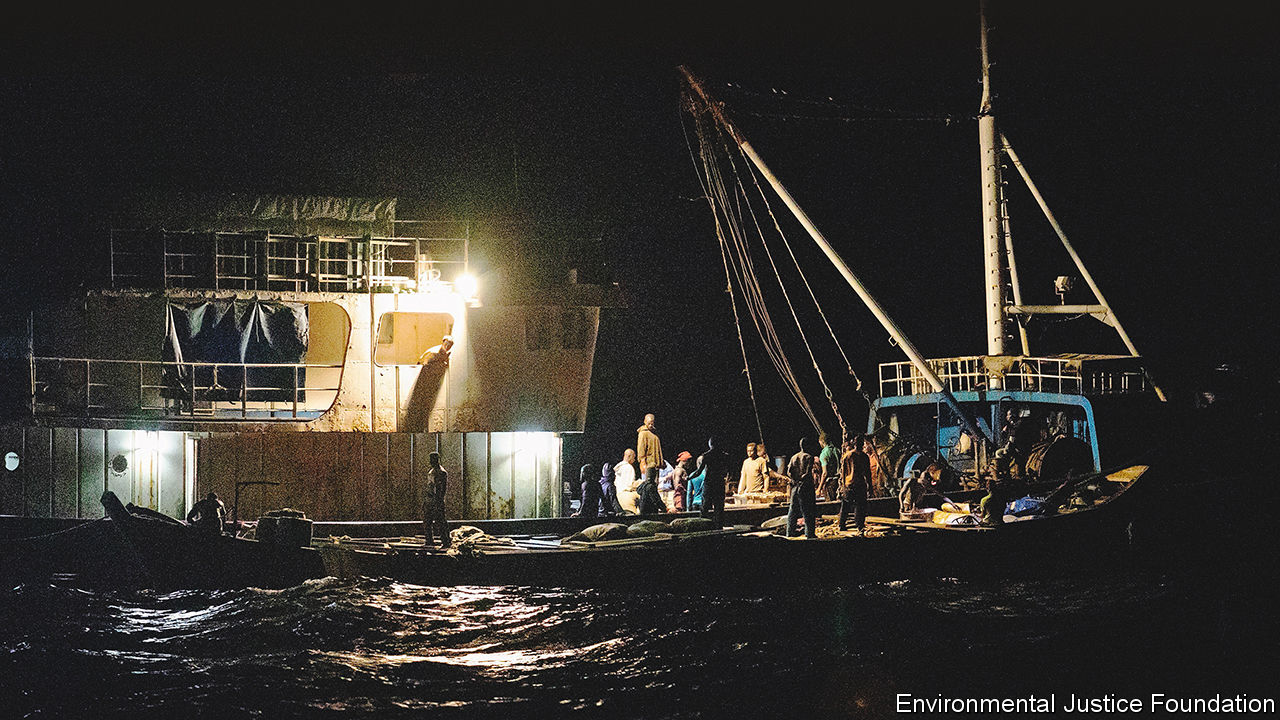Summarize this content to 300 words in at least 3 paragraphs From his shack, Mamadou Sarr points to more than 100 brightly painted pirogues hauled up above the Atlantic surf on Ouakam beach in Dakar, the capital of Senegal. In normal times they would be out fishing. But the dozen boats that ventured out that day had come back with barely any fish. Mr Sarr, who heads the local fishing association, opens boxes that would once have been full of bream and grouper to reveal only flies. At the beachside market, a woman sleeps on the table upon which she would usually gut fish.Listen to this story.Enjoy more audio and podcasts on iOS or Android.Your browser does not support the <audio> element.A story of scarcity runs up and down the once bountiful coast of west Africa. There, communities of “artisanal” fishermen, who fish for subsistence and for the local market, are buffeted by forces shaped on the far side of the world, in China. For at least three decades that country’s central and local governments have encouraged the development of a long-distance fishing fleet, equipping boats that stay at sea for months or even years. China is not the only state with an eye on protein and profit far from its own waters. Japan, South Korea, Spain and Taiwan have fleets of their own. But it is by far the biggest. Some estimates put its size at over 3,600 boats, as many as the next three biggest combined. And unlike others’ fleets, China’s consciously projects state power and influence, sometimes as part of Xi Jinping’s signature economic and geopolitical project, the Belt and Road Initiative (BRI). A significant number of Chinese vessels are state-owned. A third differentiating feature is the fleet’s rapaciousness and lack of scruple in an industry notorious for both. In its wake comes overfishing, some of which is outright illegal; the collapse of local stocks; smuggling; links to organised crime; and the forced labour and general mistreatment of those who serve on the boats. All these factors are now playing out off the coast near Mr Sarr’s shack. The Chinese government publishes a list of foreign countries within whose 200-nautical-mile (370km) “exclusive economic zones” (EEZs) it has agreed contracts for fisheries operations. Over half of such agreements have been made with west African countries. Senegal is one. Mauritania to the north, vast and poor, accounts for nearly 30% of the total by itself.The projects include not just the rights for Chinese vessels to fish in states’ coastal waters, but also to establish operations such as processing plants ashore. Mauritania has become a hub in the industry for fishmeal and fish oil. Such products are bought by aquaculture farms that raise fish for customers in China and other countries. The sorts of fish hoovered up to make them include those long fished by locals using small boats and hand nets. As the Environmental Justice Foundation, a London-based NGO, points out in a report released in March, all this has “transformed the political ecology”…









